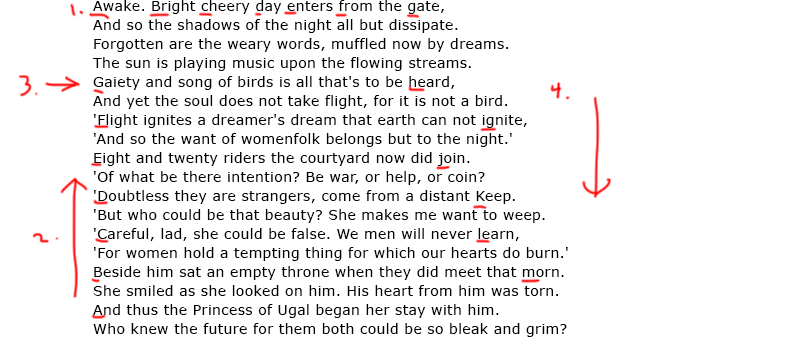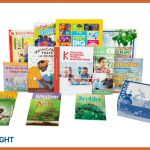I was showing off. There's no way to sugarcoat it. Thankfully, she seemed interested and genuinely impressed with my poetry.
Awake. Bright cheery day enters from the gate,
And so the shadows of the night all but dissipate.
Then again, who wouldn't be interested an impressed? Did you notice how the first line is sequenced alphabetically? The rest of the stanza has other hidden sequences running up and down the page. And all of it is completely intentional, as poetry should be.
"How did you get so good at this?" she asked with admiration singing in her voice.
"I practiced," I said. "My early poems are atrocious."
In fact, much of my poetry could be labeled that way. I have a cute little two line verse I wrote after imbibing a couple glassed of tea last year and working from that rhyme. Genius, you see?
That's me.
Sarita wrote an excellent post about Sonlight's Language Arts last week. I owe much of my creative writing ability to drinking in excellent literature as a kid. From that foundation, I was encouraged to produce passages of my own.
I've written before about how to become a great writer. The Sonlight approach to Language Arts continues to help produce excellent results:
- Get inspiration by hearing and reading great writing.
- Practice imitation of excellent prose and poetry.
- Finally, implement what you have learned in your own writing.
Over the weekend, Catherine Johnson mused about how to explain the writing process. She says she can hear when something sounds wrong and would rewrite until it sounded correct. This is where the first part of Sonlight's approach to writing comes in handy. Knowing what good writing sounds like is the foundation from which you build.
I did a little bragging at the start of this post. Do you have any examples of your child's brilliant writing? I'm interested in being impressed!
~Luke Holzmann
Filmmaker, Writer, Guardian







